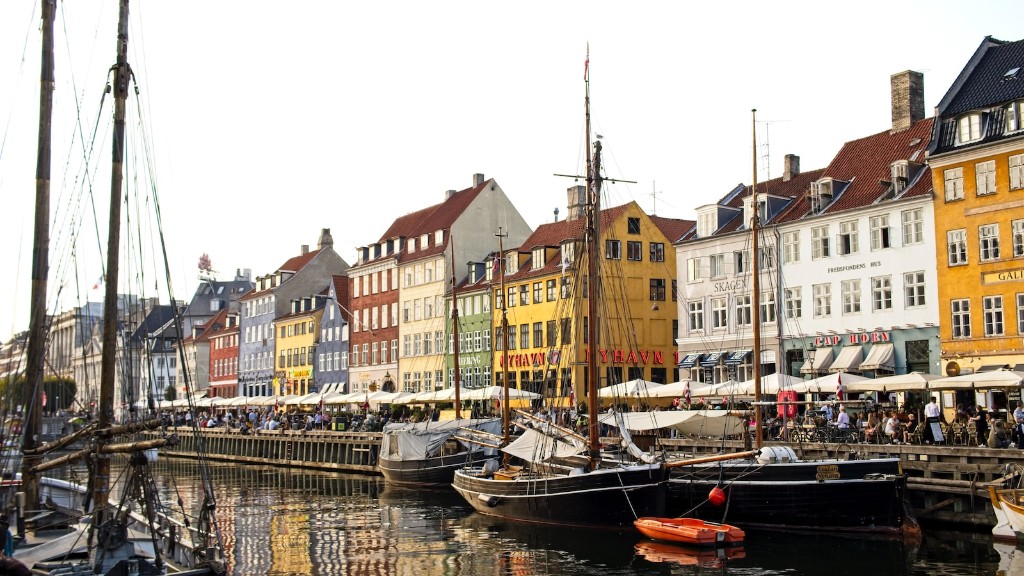Father’s Day in Denmark
Denmark, a beautiful Nordic country known for its progressive values and strong sense of community, celebrates Father’s Day on the 5th of June every year. This special day is a chance for children of all ages to honor and appreciate their fathers and father figures for their love, care, and guidance. Father’s Day is a cherished tradition in Denmark, and it holds great significance in the hearts of its people.
History and Background
The origins of Father’s Day in Denmark can be traced back to the early 20th century when a Danish-American woman, Sonora Smart Dodd, proposed the idea of honoring fathers just like mothers are honored on Mother’s Day. Inspired by the love and support of her own father, Sonora wanted to create a special day to acknowledge the important role fathers play in the lives of their children.
In 1910, Father’s Day was officially recognized in the United States, and its popularity quickly spread across the globe, including Denmark. The Danish version of Father’s Day is observed on the same day as the birthday of King Christian IX, who was a beloved father figure to the nation. It is a time for families to come together and show their gratitude for the fathers who have contributed to their lives.
Traditions and Celebrations
Father’s Day in Denmark is celebrated with enthusiasm and love. Families often start the day by treating their fathers to a delicious breakfast in bed, including traditional Danish pastries and coffee. This gesture serves as a token of appreciation and a way to pamper the fathers on their special day.
Throughout the day, fathers are showered with gifts, ranging from handmade crafts and cards from younger children to more elaborate presents from older ones. It is common for families to spend quality time together, engaging in activities that the fathers enjoy, such as fishing, hiking, or simply enjoying a barbecue in the backyard.
“Father’s Day in Denmark is not just about the gifts, but about creating lasting memories and showing genuine gratitude for the fathers in our lives,” says Maria Jensen, a Danish culture expert.
Importance of Fatherhood
Father’s Day serves as a reminder of the invaluable role fathers play in the emotional and social development of their children. Research has shown that involved and supportive fathers contribute to the well-being and success of their children in various aspects of life, including academic performance, mental health, and overall happiness.
Fathers in Denmark are known to be actively engaged in their children’s upbringing, and Father’s Day provides an opportunity to reinforce the importance of their presence and involvement. It highlights the significance of nurturing and supportive father-child relationships and encourages fathers to continue being positive role models in their children’s lives.
Inclusive Celebration
Denmark’s Father’s Day celebration goes beyond biological fathers and extends to all father figures, including stepfathers, grandfathers, uncles, and older brothers. The emphasis is on the love, care, and guidance provided by these individuals, regardless of the biological relationship. This inclusive approach ensures that all fathers and father figures are recognized and appreciated for their contributions to the lives of the children they support.
On Father’s Day, it is common to see heartwarming messages and social media posts expressing gratitude and love for fathers. The hashtags #FathersDay and #DadAppreciationDay trend on various platforms, creating a sense of shared celebration and unity among people across the country.
Conclusion
Father’s Day in Denmark is a meaningful occasion that brings families closer together and honors the essential role fathers and father figures play in society. It is a time to reflect on the love, support, and guidance provided by these individuals and express heartfelt appreciation for their contributions to the lives of their children.
By celebrating Father’s Day, Denmark not only cherishes its fathers but also promotes the importance of involved and nurturing fatherhood. It is a day that highlights the positive impact fathers have on their children’s overall well-being and encourages society to value and support fathers in their journey of parenthood.
So, this Father’s Day, let us show gratitude to all the fathers and father figures who have influenced our lives and continue to be a source of love and strength. Happy Father’s Day!
Additional Sections:
Father’s Day Traditions in Other Countries
While Father’s Day in Denmark is celebrated on the 5th of June, different countries have their own unique ways of honoring fathers and fatherhood. Let’s explore the traditions of Father’s Day in a few countries:
United States
In the United States, Father’s Day is celebrated on the third Sunday of June. It is a day to appreciate fathers and father figures through gifts, cards, and special outings. Many families gather for a meal or organize activities like fishing or hiking to spend quality time together.
Mexico
In Mexico, Father’s Day known as “Dia del Padre” is celebrated on the third Sunday of June as well. It is a day filled with family gatherings, music, and joyous celebrations. Children often serenade their fathers with heartfelt songs and present them with handmade gifts and cards.
Japan
In Japan, Father’s Day, known as “Chichi no Hi,” is celebrated on the third Sunday of June. It is an occasion to give thanks and show appreciation to fathers for their hard work and dedication. Children often gift their fathers with personalized items, sweets, and flowers.
Australia
In Australia, Father’s Day is celebrated on the first Sunday of September. Families come together to honor fathers and father figures, often by enjoying a barbecue or picnic. Homemade cards and gifts are given, and it is common to have lively sporting events where fathers are encouraged to participate.
Brazil
In Brazil, Father’s Day is celebrated on the second Sunday of August. It is an occasion to acknowledge the contribution of fathers and honor their role in family life. Families often gather for a special meal, and children express their love by giving gifts and spending quality time with their fathers.




